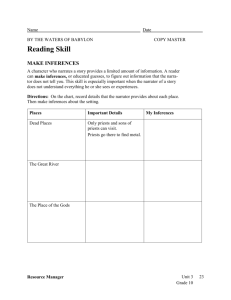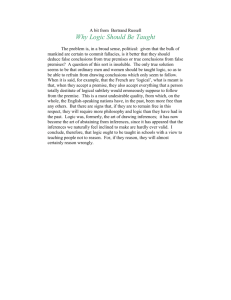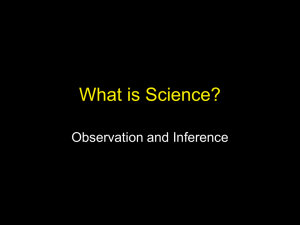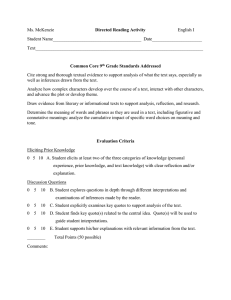Many cases, a few cases, single case studies? (Landman)
advertisement
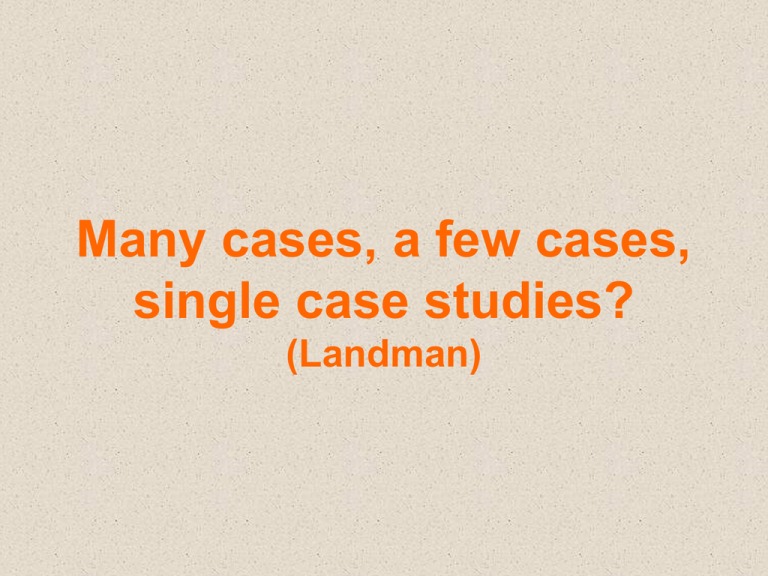
Many cases, a few cases, single case studies? (Landman) Many Cases The majority of studies that compare many countries use quantitative methods. – “Variable-oriented”: examine the relationship between variables at a global level of analysis. – The more the cases, the stronger the inferences (the more “experimental”) – Helps to identify “deviant” cases. – The qualitative study of many cases is difficult (generally historical, requires a lot of data, and making inferences is more difficult) Disadvantages • Availability of data (aggregate data is not very useful... Also, incomplete series) • Validity of measures (problematic operationalization of concepts/Too abstract) • Skills needed to analyze data A few Cases (or Focused Comparisons) • • • • Need of carefully selecting the cases. Intensive, less variable-oriented. Good for theory building Area studies Disadvantages: • Less secure inferences • Risks of selection bias • Need of carrying out fieldwork 2 main approaches (drawn from John Stuart Mill) – Most similar systems design (MSSD): seeks to identify key features that are different among similar countries, which account for the observed political outcome. Suited for Area Studies. – Most different systems design (MDSD): comparison of cases that only share a certain political outcome to be explained, and one or two explanatory factors considered crucial to generate the outcome. Comparisons accross different regions. MSSD MDSD C1 C2 C3 C1 C2 C3 a a a a d g b b b b e h c c c c f i Key explanatory factor x x x x x Outcome to be explained y y Not x Not y y y y Features Some comparativists combine both... • Example: in Problems of Democratic Transition and Consolidation, Linz & Stepan use MSSD to examine democratic consolidation within regions (South America, Southern Europe, and Eastern Europe), and then use MDSD to compare democratic consolidation across regions. Single Case Studies • The study of a single case is considered comparative if it uses or develops concepts applicable to other cases, and/or seeks to make larger inferences. • Contextual description = clinical studies in medicine. • Ideal to examine “deviant cases,” to generate hypotheses, to develop new classifications. • Inferences based upon one case are less secure. Disadvantages • Insecure inferences • Selection bias • Need of carrying out fieldwork What would you try? Qualitative or quantitative? Why? In what circumstances would you choose many cases, a few cases, or single case studies? Why? Policy and Politics in Six Nations Stella Theodoulou How, why, and to what extent do different nations pursue particular policies? • Comparative public policy is the study of why two or more political systems or governing bodies adopt the public policies they do. • Provides models that can be used in different settings (transfering learning?). • How similar institutions operate in different settings. • Goal of the book: to expose readers to different political systems and the context in which public policy is made. Globalization • Makes problems cross over physical borders • “Shared” or similar problems • Need of judging which policies are possible to adapt from one to another setting The Approaches • The Cultural Values Approach • The Neo-Corporatist Approach (institutionalized bargaining) • The Institutional Approach (State structure) • The Socioeconomic Approach • The Politics Matters Approach (political choices) What Nations and What Policies to Study? • The United States, Great Britain, Sweden, Brazil, Japan, and Germany are compared across four areas of social policy. • Why Brazil? “I am interested in seeing if differences occur between durable market democracies and transitional market democracies.” (12)


